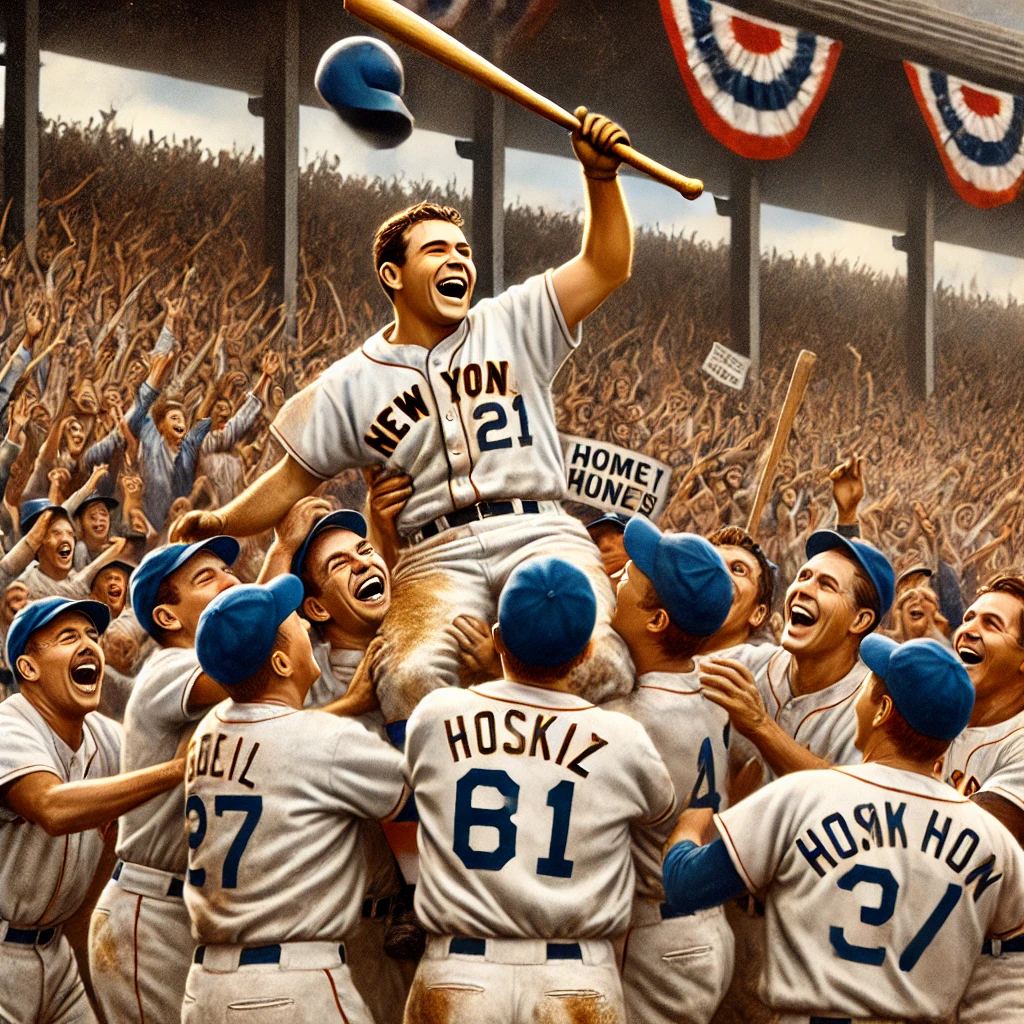On October 1, 1961, Roger Maris forever etched his name into baseball history by hitting his 61st home run of the season, breaking Babe Ruth’s long-standing single-season record. The feat, accomplished in front of an anxious crowd at Yankee Stadium, not only crowned Maris as a baseball legend but also ignited debates that reverberated throughout the sports world for years to come. With this swing, Maris transcended the sport, becoming a symbol of perseverance and dedication in the face of enormous pressure.

A Season of High Drama
The 1961 baseball season was dominated by the race to break Babe Ruth’s home run record of 60, set in 1927. Maris, along with his New York Yankees teammate Mickey Mantle, embarked on a thrilling chase for the title of home run king. While Mantle was considered the more popular and likely candidate to surpass Ruth, it was Maris who kept pace and ultimately surpassed the historic mark. As the season progressed, the pressure mounted, and Maris faced intense media scrutiny. Many fans were loyal to Ruth and resented the idea of his record being broken. Maris, more introverted by nature, struggled with the attention and the stress of the chase.
Despite these challenges, Maris remained focused. His powerful swing, combined with his consistency at the plate, enabled him to reach 60 home runs, tying Ruth’s record with just a few games left in the season. On the final day of the regular season, facing the Boston Red Sox, Maris hit a fastball over the right-field fence, achieving the historic 61st home run and cementing his place in the annals of baseball lore.

Breaking More Than Just a Record
Roger Maris’s 61st home run was more than just a record-breaking swing—it symbolized a turning point in the history of the sport. Babe Ruth’s record had stood for 34 years, and many believed it would never be broken. Ruth, a beloved figure in American culture, had become larger than life, and his records were viewed as untouchable. When Maris broke the record, he did so in an era where the baseball season had expanded from 154 to 162 games, which led to controversy over the legitimacy of his accomplishment. Some argued that Ruth’s record still stood because he set it in a shorter season, while others felt that Maris deserved full recognition for his feat.
To further complicate matters, the pressure took a toll on Maris’s health and well-being. He received hate mail and was subject to negative media coverage, with some fans even booing him at games. This dark cloud of controversy surrounded his achievement, casting a shadow over what should have been a purely celebratory moment. Despite this, Maris remained humble and gracious, never seeking to overshadow Ruth’s legacy, but rather aiming to make his own mark on the game.
A Legacy That Endures
In the years following his 61-homer season, Roger Maris continued to be a respected figure in the baseball community, but the recognition he deserved for breaking the record took time. It wasn’t until decades later that his achievement was fully appreciated, particularly after the steroid era called into question many other records in baseball. Maris’s clean and honest approach to the game now stands as a benchmark of integrity and perseverance.

Today, Maris’s 1961 season is seen as one of the most remarkable individual accomplishments in the history of Major League Baseball. The record-breaking moment has been immortalized in documentaries, books, and films, helping solidify Maris’s place in sports history. While he may not have been the flashy star like some of his peers, Maris’s achievement serves as a reminder of the quiet, determined greatness that often goes unheralded but ultimately shines the brightest.
His story continues to inspire players and fans alike, showing that greatness often comes not from being the most celebrated, but from rising to the occasion when the world is watching. Maris’s 61st home run may have happened in a single game, but its significance has echoed across generations, forever altering the course of baseball.
